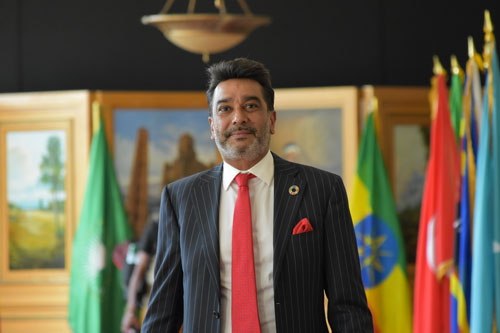The limits to private doctors’ fees published by medical doctors and facilities regulator Kenya Medical Practitioners and Dentists Board (KMPDB) recently should worry us.
Despite the supposed good intentions, it will not solve the problem of our weak health system and will negatively affect the workforce and the economy.Capping prices sets a dangerous precedent for broader economic growth. We saw this phenomenon in the current financial sector with the government’s intervention to cap bank interest rates.
Top-down enforcement to the private market only hurts the economy, making the population poorer and perpetuating the very problems we seek to fix.
Morale
Our southern neighbour offers a warning to us. For many years, Tanzania created an environment that was unfavourable to private practitioners. The country now suffers one of the worst doctor-to-patient ratios.
This is also the reason we have repeated strikes and low morale within the public health sector workforce.
Strikes do not take place overnight; it’s a result of prolonged unattended agony of the workers.Striking workers will happily go back to work if there is appropriate engagement and effective leadership from the authorities.
An unfavourable environment is the main cause of a failed health system, not just pay. Along with the maximum fee for doctors, the KMPDB has also set a minimum charge.
DETERRENT
This is more evidence that the publication was not well-thought out. Does this mean that a doctor could be punished for giving a discount or even waiving the bill for a patient who cannot afford to pay?
This, clearly, goes against promoting affordable healthcare. In fact, poor implementation of this guideline may have the unintended effect of raising the cost of healthcare if those at the low end of the range choose to move towards the maximum.
The impact of the cap would be most strongly felt if it were used as a guideline for the public to refer to rather than instituting it as a gazetted document.
Patients and payers could use it as a way of setting expectations, providing a sense of predictability of medical costs.
The purpose of this publication should be to empower patients with knowledge and choice, not to impose caps on the prices of medical services.
If a facility is charging outside the recommended range, patients would be empowered with the knowledge to go elsewhere.
PRICE ISSUE
The medical insurance industry has agreed to use this document just as a tool for negotiation of rates and feels that the rates are too high and may not help in reducing healthcare costs.Price control is a superficial fix to a much more significant problem: a weak public health system.
The Kenyan health system, stewarded by the government, should be robust enough to accommodate those who need more affordable options.
We have a price issue in healthcare because public sector facilities do not provide the quality of care Kenyans seek, forcing them to go to the private practitioners.
The price of medicines and drugs also contributes to the high cost of healthcare. There are chemists and drug vendors selling all sorts of medicines at all sorts of price mark-ups depending on how much you can pay.
MEDICINES
Patients commonly go “pharmacy hopping”, looking for the best price.
You can also easily buy prescription drugs in Kenya without any legal prescription from a doctor.This errant trade practice has encouraged fake and counterfeit medicines to flood the markets in several counties, leaving the unsuspecting patient at high risk.
The Pharmacy and Poisons Board (PPB) is yet another regulator that needs to up its game in this space.Health sector regulators need to prioritise efforts where they are most required to safeguard the quality of services in the industry, in both the public and private sectors.
A case in point is the recent alleged “botched abortion” at a clinic in Dandora. This unregistered clinic was said to be operating in Nairobi over the past 10 years. Didn’t KMPDB have a clue? How many more are there?
SCRUTINY
The KMPDB must use its regulatory authority to ensure private doctors uphold ethical practices at all times.
It needs to strictly address issues of overcharging, over servicing and poor quality. Too few private doctors have been subject to the necessary scrutiny.
Hence, the public feels that the healthcare is quite “commercialised”, which, generally, is not the case.
How many Kenyans know that they can seek redress if they are not satisfied with a doctor’s care or fees?
It is time the regulators got their priorities right and started helping to strengthen the health system, especially the public sector, which is non-negotiable if universal healthcare is to be realised.
It needs to strictly address issues of overcharging, overservicing and poor quality. Too few private doctors have been subject to the necessary scrutiny.
Dr Thakker is the executive chairman of Africa Health Business. athakker@khf.co.ke. Ms Mumley is a health journalist for Africa Health Business. jmumley@africahealthbusiness.com


Comments are closed